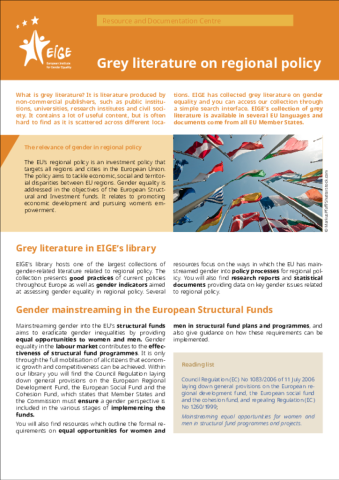The EU’s regional policy is an investment policy that targets all regions and cities in the European Union. The policy aims to tackle economic, social and territorial disparities between EU regions. Gender equality is addressed in the objectives of the European Structural and Investment funds. It relates to promoting economic development and pursuing women’s empowerment.
